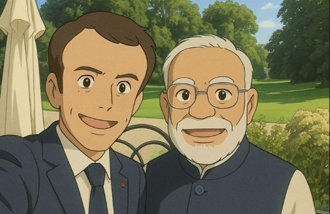Military promotion unit and entertainer soldiers
Military promotion unit and entertainer soldiers
Posted July. 19, 2013 04:53,
When Heo Cham, a popular TV show host, was serving as an army private in 1970, he came on top in a speech contest at a brigade under the 26th Division of the Army. He also finished first at a talent contest for selecting members of the military`s promotion unit. After making it into the unit, he served as an MC for shows for soldiers for about two years until he completed his military service. At that time, he was not involved in the entertainment industry but the military noticed his talent. In the winter of 1973, he happened to act as an MC at a live music club run by Lee Jong-hwan, a popular radio producer. Lee noticed Heo on the spot and hired him as a DJ and MC for his club, putting him on a lifetime career as a professional MC.
The military promotion unit, which carried out promotional work and performed shows for troops, was often looked down on by other soldiers. In 1996, the Ministry of National Defense reorganized the unit to the National Defense Promotion Support, putting it in charge of military promotion work including military radio and TV shows and concerts. The unit was composed of about 18 popular entertainers including singers and actors every year. About 100 celebrities have been part of the unit in its 16-year history.
The "entertainer unit" allowed celebrities to continue performing without worrying about a break in their careers and to avoid rigorous military drills. The unit also allowed the military to employ famous entertainers with a monthly salary worth about 100 U.S. dollars a month. Both the celebrities and the military benefited from the system. The celebrity soldiers took an average of around 150 days off per person, nearly four times as many as the allowance for regular soldiers.
The Ministry of National Defense announced Thursday that it will scrap the entertainer unit system. The move came after media reports of singer Rain on a date with his celebrity girlfriend during his military duty and other entertainer soldiers visiting massage parlors. Some of them will be sent to a military jail for violating the military code of conduct. But is it a good idea to scrap the entertainer soldier system just because of some cases of deviant behavior? Some might say that it is like killing a mosquito with an axe. Some entertainer soldiers who participated in a military musical marking the 60th anniversary of the armistice of the Korean War are said to have practiced from 9:00 a.m. until 10:00 p.m. for three months, without any weekend breaks. It is regrettable that the entertainer soldier system will be scrapped in haste.
Editorial Writer Choi Yeong-hae (yhchoi65@donga.com)
Headline News
- Yoon removed from office by unanimous court decision
- Constitutional Court mentions responsibility of both Yoon and National Assembly
- Won-dollar rate falls to 1,430 range after impeachment ruling
- Teacher with spinal cord injury transforms into career counselor
- U.S. redeploys Patriot missiles from S. Korea without replacement forces







